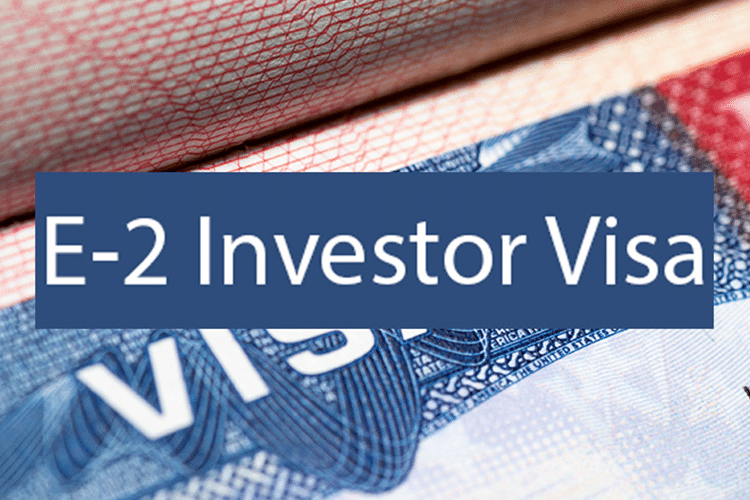Business Visas for Entrepreneurs: An In-Depth Guide to E-2 and L-1 Visas
In today’s globalized economy, the United States remains a prime destination for entrepreneurs, investors, and executives aiming to launch or manage businesses. Understanding the pathways through which one can legally operate a business on American soil is of paramount importance. Among these pathways, the E-2 and L-1 visas stand out as two of the most effective options for non-US nationals seeking to invest in and manage companies within the U.S. This comprehensive article by Legal Marketplace CONSULTANT aims to provide an extensive understanding of the E-2 and L-1 business visas, outlining application requirements, procedural nuances, eligibility criteria, and strategic considerations essential for entrepreneurs and business executives alike.
Understanding the E-2 Investor Visa
The E-2 visa is a non-immigrant visa designed for individuals who make a substantial investment in a U.S.-based business. This visa allows investors and essential employees to live in the United States while developing and directing their investment enterprise. Originating from the Treaty Investor category under US Immigration Law, the E-2 visa requires that the applicant’s country of nationality must have a qualifying treaty with the United States. This visa is particularly attractive for entrepreneurs who are looking to establish new businesses or acquire existing ones in the U.S.
Key advantages of the E-2 visa include the ability to renew the visa indefinitely provided that the business continues to meet the investment and operational criteria. It also permits spouses to apply for work authorization, thereby supporting family integration during the stay. However, applicants must demonstrate that the investment is substantial, at risk, and sufficient to ensure the successful operation of the enterprise.
Eligibility Criteria for E-2 Visa Applicants
The eligibility requirements for the E-2 visa focus on several core elements:
- The applicant must be a citizen of a country that maintains a valid commerce and navigation treaty with the United States.
- The invested funds must be substantial in relation to the total cost of either purchasing an established business or establishing a new one.
- The investment must be deployed in a real and operating commercial enterprise.
- The investment funds must be risked and committed to the business; speculative or idle investments do not qualify.
- The applicant must demonstrate the intent to develop and direct the business, either through ownership or operational control.
- The business must generate more than enough income to support the investor and family, or have a significant economic impact.
The Business Plan: A Cornerstone of the E-2 Visa Application
One of the most critical elements for a successful E-2 visa application is the presentation of a detailed, credible business plan. The United States Citizenship and Immigration Services (USCIS) requires a comprehensive document that outlines the nature of the business, market research, operational plans, financial projections, and employment creation. A well-crafted business plan exhibits the viability of the enterprise and the prospective ability to sustain the investor and any associated employees.
Legal Marketplace CONSULTANT emphasizes that alignment between immigration law requirements and business realities must be flawless. The submission should include a breakdown of startup costs or purchase price, anticipated revenue streams, expense forecasts, and a timeline to profitability. Equally important is the risk assessment and contingency strategies to ensure the investment is neither superficial nor risk-free but genuinely at stake.
Navigating the L-1 Intra-Company Transfer Visa
The L-1 visa offers an alternative route for business executives, managers, and specialized knowledge employees belonging to multinational companies. It is designed to allow companies to transfer key personnel from foreign offices to their U.S. operations, or to establish new U.S. offices by transferring qualifying employees. The L-1 visa is divided mainly into two categories: L-1A for executives and managers, and L-1B for employees with specialized knowledge.
In 2025 and beyond, the L-1 visa continues to be an effective mechanism for companies expanding into the United States, affording temporary but renewable stays. Unlike the E-2, the L-1 visa does not require a direct investment but demands robust evidence of the qualifying relationship between the foreign and U.S. entities, such as parent, subsidiary, affiliate, or branch connections.
Eligibility Requirements for the L-1 Visa
To qualify for an L-1 visa, the applicant must meet specific eligibility benchmarks as follows:
- The applicant has been employed outside the United States by a qualifying organization for at least one continuous year within the three years preceding the application.
- The applicant is seeking to enter the U.S. to provide services as an executive, manager, or an employee with specialized knowledge for the same employer or its affiliate or subsidiary.
- The U.S. company must be actively doing business during the applicant’s stay.
- For initial L-1 approvals for new office establishments, the company must provide a detailed business plan demonstrating financial ability and prospective growth.
Business Structural and Compliance Considerations
Both the E-2 and L-1 visas necessitate strong corporate structure and compliance. Investors and executives should ensure that the business entity is properly registered according to U.S. state and federal guidelines. This encompasses tax registration, corporate governance, and employment laws compliance. In cases of E-2 visas, because the investment is central, demonstrating that the invested funds are traceable and deployed in accordance with legal prerequisites is critical.
For L-1 visa petitioners, the relationship between the U.S. and foreign companies must be maintained with clear documentation of ownership percentages, control mechanisms, and transactional history. Noncompliance or structural weaknesses can result in visa denial or revocation risks.
The Interplay of Immigration and Business Law
Legal Marketplace CONSULTANT advises that the intersection of immigration law and business law is complex and requires integrated legal expertise. While immigration law governs the eligibility and procedural adherence to visa regulations, business law secures the operational foundation of the investment or employment relationship. Deficiencies in either can imperil the entire venture.
Professional legal counsel skilled in both realms is indispensable to navigate evolving regulations, prepare compelling business plans, and ensure that corporate formalities meet USCIS scrutiny standards. This alignment mitigates risks of denial, delays, and disruptions in business operations.
Practical Steps to Applying for E-2 and L-1 Visas
Acquiring an E-2 or L-1 visa entails a multi-step process that typically includes the following stages:
- Assessment of eligibility and selection of the appropriate visa category based on business objectives and nationality.
- Compiling required documentation, including personal identification, proof of nationality, business ownership records, and detailed business plans.
- Submitting the petition to the U.S. Citizenship and Immigration Services (USCIS) or applying through a U.S. embassy or consulate abroad.
- Undergoing visa interviews when required and providing biometric data as part of security vetting.
- Receiving approval notices and organizing lawful entry into the United States.
- Complying with business operations as detailed in the application to sustain visa eligibility during the authorized stay.
Common Challenges and How to Overcome Them
Applicants for E-2 and L-1 visas often encounter hurdles related to documentation, investment scale, or evidence of managerial capacity. Some of the frequent challenges include:
- Insufficient proof of the invested funds’ source and their risk exposure.
- Inadequate or vague business plans failing to demonstrate economic viability.
- Failure to prove the qualifying relationships between foreign and U.S. companies under L-1 requirements.
- Questions regarding the business’s ability to support the investor or employee and any family members financially.
- Lack of compliance with corporate and tax regulations.
To circumvent these issues, it is strongly recommended to engage experienced legal advisors who specialize in U.S. immigration and business law. Preparing a detailed evidence package, conducting thorough financial due diligence, and understanding regulatory obligations are imperative steps.
The Importance of Continuous Compliance and Renewal
The duration of E-2 and L-1 visas varies, but both allow for extensions and renewals as long as the visa holder maintains qualifying conditions. Continuous compliance with immigration statutes and business practices is essential to safeguard uninterrupted operation and residence.
For example, the E-2 visa typically grants an initial stay of up to two years with the option to renew indefinitely, subject to ongoing investments and business success. The L-1 visa allows for an initial stay of one to three years with extensions possible, especially for executives and managers under L-1A classification up to a maximum of seven years.
Expert Legal Assistance from Legal Marketplace CONSULTANT
Legal Marketplace CONSULTANT provides tailored legal counsel for entrepreneurs and executives navigating the complex landscape of U.S. business visas. Our team of experts specializes in harmonizing immigration and business law to deliver compliant, practical, and effective strategies for visa acquisition and business establishment in the United States.
We assist with:
- Drafting and reviewing comprehensive business plans tailored to visa criteria;
- Structuring investments to meet E-2 substantive requirements;
- Preparing and filing L-1 petitions with supporting documentation of corporate relationships;
- Ensuring adherence to U.S. commercial and tax regulations;
- Providing strategic guidance on visa renewals, extensions, and compliance matters;
- Resolving challenges arising during application processes and interviews.
Conclusion
For entrepreneurs and executives planning to establish or grow business ventures in the United States, understanding and leveraging the E-2 and L-1 visa options is vital. These visas offer dynamic opportunities for investment and intra-company transfers, facilitating legal residence and business operation. However, success depends heavily on carefully structured investments, credible and detailed business planning, and strict compliance with immigration and corporate regulations.
Legal Marketplace CONSULTANT stands ready to guide applicants through every step of this complex process to maximize chances of approval and long-term business success in the U.S. Contact us via the communication channels in our bio or send a private message to receive expert legal help tailored to your individual business immigration needs.
Legal Marketplace CONSULTANT — a specialist legal service provider in comprehensive business and immigration law solutions, empowering entrepreneurs and executives with expert guidance and strategic planning.































